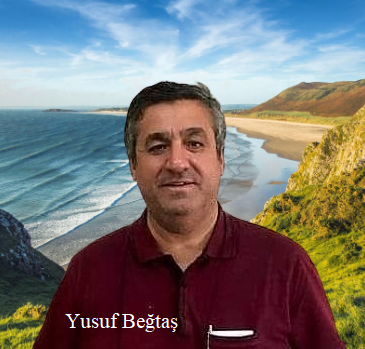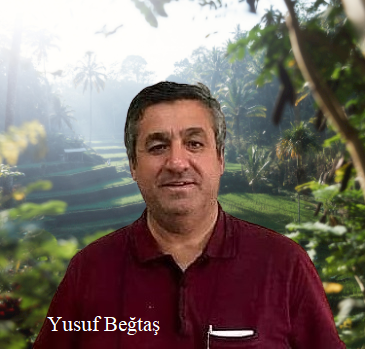The Birth of Christ and Inner Peace
The Birth of Christ and Inner Peace
ܐܳܘ ܢܘܼܗܪܳܐ ܕܪܘܼܚܳܐ ܘܫܰܝܢܳܐ ܕܢܰܦܫܳܐ ܘܚܶܟܡܳܐ ܕܗܰܘܢܳܐ.
ܠܰܝܬ ܒܰܣܺܝܼܡ ܡܼܶܢ ܚܽܘܼܒܳܐ ܕܝܰܠܕܳܟ ܪܰܒܳܐ ܕܚܰܘܣܳܢܳܐ. ܘܝܰܡܳܐ ܕܪ̈ܰܚܡܶܐ ܘܰܚܢܳܢܳܐ.
In Syriac, ܢܦܫܐ means “nafşo / nafşa”, known as the SELF, both the soul and the ego. It stands for the untamed self that exists within the soul. CHRIST was born to establish the supremacy of the power of the spirit in earthly life and to resolve the inner contradictions/conflicts we experience because of this untamed self. He came to free and liberate us from ourselves so that our thoughts are transcended by the importance of the mind and produce good fruit on the ground of the world. As it says: “Therefore If anyone be in Christ, he is new creature: old things are passed away; behold, all things are become new!” (2 Corinthians 5:17).
It was a time like this again. Not only the outer world, but also the spirit had become profoundly cold. Selfishness and cruelty prevailed. Human dignity was trampled underfoot. Intentions, thoughts, expressions and actions were paralysed due to the chilled spirit. People were incapacitated.
CHRIST was born as divine compassion and unconditional love in a time of injustice and grievances. His birth was essentially a social awakening that ended the inner conflict between ego and spirit and made the power of spirit visible. When we are filled with the programme and spirit (software) of this birth, we understand that personal victory precedes universal victory. Then our spiritual well-being remains unshaken and life becomes more enjoyable and meaningful.
With his birth he illuminated our existence as an integral part of the great TRUTH, which will not pass away with us. He elevated human dignity by preventing marginalisation. He replaced domination with an understanding of completion. He developed service against arrogance. He healed the paralysed and crippled aspects of humanity so that social empathy could grow and flourish. He healed us so that we could support each other. He healed us so that we can always develop a compassionate awareness of moral discipline. He healed us so that we might bear one another’s burdens with understanding. To lighten the burden. He has awakened us so that humility may multiply and magnify us. He has proclaimed to us that we should approach people and all beings with a spirit of compassion.
The sacred is revealed to us with the birth of Christ. Life comes into being in Him. He is the embodiment of all meanings and satisfactions. He is the only light for our inner peace. If we can connect to His life-giving teachings without replacing His love with another, we can rediscover what has been lost within us and restore ourselves and our sphere of influence. We can stabilise ourselves and give life more meaning.
When we are filled with Him, our consciousness grows. Our life and our self-perception develop. Freed from the latent arrogance and prejudices of the ego, we become enlightened. Our hard gaze softens and our hard stance becomes flexible. In this way, we can move forward more smoothly in the flow and challenges of life. The pain and suffering we experience on the path of maturity are meant to illuminate the darkness of the ego. They serve to establish the beauties of the spirit – the true self. The energy of the spirit, unlike the energy of the ego, does not pollute life. On the contrary, it simplifies and beautifies life.
For the energy of the spirit is beyond the influence of time and space. It is not subject to the law of opposites/contradictions, which states that everything can only exist with its opposite, that there can be no good without evil.
The ego represents the will of the world; the spirit represents the divine will. While the will of the spirit is open to renewal and transformation, the will of the ego clings to old patterns. It never wants to renew or transform itself
The ego is destructive, the spirit is constructive. The ego is inconsistent and deceptive. The spirit is sincere and enlightens. The ego loves destruction, the spirit loves creation. The ego tries to take, the spirit tries to give. The ego says “I” and excludes others, behaves selfishly and looks after its own interests. The spirit says “we”, sees others as itself, behaves selflessly and uplifts the common good.
The ego symbolises rigidity and regression; the spirit symbolises flexibility and development. While the ego is bound and dependent on physical conditions, the spirit is free and boundless. While the ego is difficult and oppressive, the spirit is relieving and liberating.
The ego stands for pessimism, fear, sorrow, infidelity, irresponsibility, envy, cunning, oppression, moral evil, disharmony, conflict, laziness, destructive activities, competition, hatred, superiority, exploitation and revenge.
The spirit reflects optimism, courage, joy, happiness, sincerity, goodness, responsibility, loyalty, originality, freedom, harmony, peace, diligence, truth, constructive activities, abundance, prosperity, generosity, forgiveness and love.
The opposing attitudes of ego and spirit cause chaos in our inner world. In this chaos, the mind and the heart play decisive opposing roles: The heart merges with the will of the spirit and strengthens the spirit. The mind, on the other hand, merges with the will of the ego and strengthens the ego. While the heart surrenders to the will of the spirit, the mind insists on remaining in the will of the ego. This leads to egoistic discomfort. As the will of the spirit becomes stronger, the will of the ego becomes weaker. Thus, the will of the ego becomes ineffective and the will of the mind comes into play. This process is more dangerous than the real obstacles of the outer world. Depending on how big or small these obstacles are, we experience ups and downs: therefore, transforming the inner conflict caused by the ego and the mind into peace, as revealed by the birth of Christ with its meanings, is the fundamental principle of a stable and serene life. The knowledge of “the way, the truth and the life” (John 14: 6) embodies the dynamic of this principle. This dynamic is far more valuable and superior than anything we possess (position, authority, knowledge, skills, equipment, wealth, etc.). Because in its absence, the blind spots in people increase. When these blind spots increase, the ego-man becomes rigid. The spirit-man shrinks. However, when the blind spots in man are illuminated by the knowledge of “the way, the truth and the life”, the spirit-man expands. The ego-man becomes flexible and gains understanding. The calming of our inner chaos therefore depends on the dominance of the spirit. Awakening and rebirth are necessary for this.
The dark sides of the ego must be illuminated by the light of love and knowledge. The true self cannot be born without illuminating the dark sides of the ego. Getting on with a false self and being comfortable in worldly difficulties goes beyond virtual satisfaction.
For the true self, which is about overcoming the struggle with oneself, recognising oneself, finding oneself, coming to oneself and growing beyond oneself, is difficult without scraping off the thick layer of ego mud that covers the mind. Just as ”Take heart, I have overcome the world” (John 16: 33) challenges the ego’s evil desires, we should know that we will reach our true selves when we make a pure heart, love, generosity, humility, forgiveness, openness and inner freedom our motto and charge our sense of justice (not selfishness) with compassion. We cannot win this challenging battle if Christ’s programme is not active in us. If his programme is not active in us, we are no different than a smartphone without a network. As it says: “He who obeys God’s commandments lives in God and God in him. We know this through the Spirit he has given us” (1 John 3: 24).
Let us not forget that the essential function of worship and spirituality is to strengthen the spirit and make it functional so that a person can dominate the spiritual-human aspect over the ego-human aspect. So that they can rule over their leading self. For a person who cannot realise the will of the spirit in his life becomes weak and dysfunctional.
With these thoughts, I wish everyone a Merry Christmas that brings inner peace. May our lives be warmed by His love. Let us pray that He may illuminate all of existence. May wars cease. May hearts be filled with His light and eyes with His splendour.
For the year 2024, I wish all of humanity peace and blessings.
Kind regards,
Yusuf Beğtaş
Syriac Language-Culture and Literary Association / Mardin


